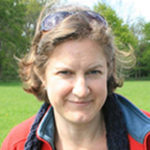
 Around 5% of all cancers worldwide are caused by the human papillomavirus or HPV.
Around 5% of all cancers worldwide are caused by the human papillomavirus or HPV.
In the late 1990s and early 2000s two vaccines were developed that protect against the two types of HPV that cause around 80% of cervical cancers. In the UK, girls who are aged 12-13 years old in year 8 at school are now offered one of these vaccines as part of the childhood immunisation programme. The vaccine that is used as part of the UK programme also protects against two types of HPV that cause genital warts. Recently, a third HPV vaccine called the nonavalent or 9-valent vaccine has been licensed for use in the European Union, as well as in the US, and it may be introduced into the UK immunisation programme in the future.
The new 9-valent vaccine
The 9-valent vaccine, as the name suggests, protects against nine types of HPV—that means protection against an extra five HPV types compared with the other two vaccines. These nine HPV types cause up to 90% of cervical cancers, so an additional 10 in every 100 cervical cancers could be prevented.
Where does behavioural science fit in?
The invention of these vaccines is a fantastic step forward towards wiping out cervical cancer, but this can only happen if people get the vaccine and we know that many people are not doing so for a variety of reasons. The benefits of the HPV vaccine will be greatest if most people get the vaccine, however, as with all healthcare decisions, the decision to get the HPV vaccine should be an individual informed choice. In our new paper, we look at how we can use our understanding of why people don’t get vaccines, specifically the HPV vaccine, to try to increase uptake of the 9-valent vaccine.
Reason 1: Will the 9-valent vaccine overload the immune system?
Some parents worry that vaccines overload the immune system and others worry that particular ingredients make vaccines risky for their children. Some parents consider combination vaccines to be risky for both of these reasons as they are seen as containing a greater number of ingredients. The 9-valent vaccine is not a combination vaccine, but it protects against nine types of HPV, compared to two or four types of HPV with older HPV vaccines, and might be seen as more dangerous. However, parents should be reassured that the 9-valent vaccine is safe and has been licensed for use in the UK, US, and the rest of Europe. There is also no evidence that vaccines overload the immune system.
Reason 2: “I’ll wait to decide until there’s more evidence that it will protect my daughter in her 20s”
Many parents have said that rather than giving their 12 or 13 year old daughter the vaccine (as recommended) they would rather wait until their daughter became sexually active so that she may be protected when she “really needs it.” However, the HPV vaccine is likely to give protection against HPV for decades and works better if it is given at a younger age. Parents may also find it difficult to get the vaccine for their daughter outside of the routine immunisation programme. Parents should be reassured that 12 to 13 is the right age for their daughter to get the 9-valent vaccine.
Reason 3: “It’s so new, the government can’t know about the long term side effects”
Because the vaccine is relatively new, some parents say that they are worried that the vaccine has not been monitored for long enough. However, vaccines go through many years of testing before they become available to the public. There is no evidence that the HPV vaccines are unsafe or cause side effects other than temporary mild/moderate pain, swelling, redness, and itching at the injection site.
What else can be done to increase uptake of the 9-valent vaccine?
Systematic reviews have looked at the evidence for interventions to improve uptake of HPV vaccines. These show that uptake can be improved by doing things such as sending reminders to parents and running school based immunisation programmes like we have in the UK. In the US, where the vaccine is given in a clinic setting, parents are most likely to get their daughter vaccinated if a doctor recommends that she has it. The language that the doctor uses to make that recommendation is also important.
The 9-valent HPV vaccine is a fantastic opportunity to prevent even more cancers that are caused by HPV. Parents can be reassured that the HPV vaccines are safe and will provide protection for their children against a number of cancers for many years.
Alice Forster is a senior research associate at UCL, funded by a Cancer Research UK cancer prevention fellowship. Her research aims to better understand uptake of the HPV vaccine and how uptake might be improved.
Competing interests: I have read and understood BMJ policy on declaration of interests and declare the following interests:
- Fellowship funding from Cancer Research UK
- Travel grant funding from Cancer Research UK
- Research grant funding from Cancer Research UK
Jo Waller has worked as a health psychologist at UCL for over 15 years and currently holds a Cancer Research UK career development fellowship. Her research interests include understanding cancer screening attendance, exploring responses to possible cancer symptoms, and measuring the psychosocial impact of screening participation.
Competing interests: None declared.
